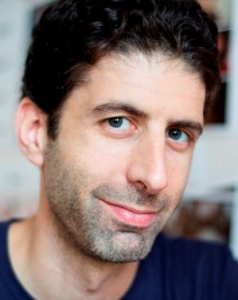 For Adam Abel, a New York based artist, making his film “QALQILYA: Where Palestinian Boys are Learning How to Fly” was a complete accident, or perhaps, “the accident was waiting for him” as he says.
For Adam Abel, a New York based artist, making his film “QALQILYA: Where Palestinian Boys are Learning How to Fly” was a complete accident, or perhaps, “the accident was waiting for him” as he says.
In 2010, Abel was working on a project about borders around the world that make physical marks in the Earth. The project later developed into an installation called ‘Terra Infirma’, which represents boundaries as political interventions, and examines the human territorialisation and occupation of land.
His search took him to Palestine because he was interested in the way the Israeli separation barrier –an 8 metre high wall complete with watchtowers and sensors – wraps around Palestinian villages and cities including Qalqilya. Once a thriving agricultural centre of the West Bank, Qalqilya today has been cut off from most of its land because of the Wall.
He soon heard about a group of skaters who were living there. “I was absolutely captivated when I met Sajed (the protagonist in the film) for the first time,” Abel recalls. “Sporting a curly afro, baggy jeans and red Vans shoes, Sajed showed me home-made videos of he and his crew doing tricks all over the city.”
After this encounter, everything just happened so naturally and quickly. Abel was later invited to come back to photograph and film the group of skaters and hip hoppers at one of their late night practice sessions at the entrance of the zoo in Qalqilya – the only zoo in Palestine.
“How poetic – here I was outside of a zoo, inside a city caged in like a zoo, and hanging out with a bunch of Palestinian kids who are using movement to express themselves,” says Abel. “Someone needed to tell this story. Armed with a DSLR and a microphone, I began making a film.”
According to Abel, the film is about a group of youths who are using the walls that surround their community to propel themselves in new directions. “When faced with both the physical barriers of the occupation and the social barriers within their society, Sajed and his team ‘X Games’ do not try to destroy these obstacles, nor do they run the other way. Instead, as best represented in the sport of parkour, they use the walls that confine them as tools to fly,” he adds.
“QALQILYA”, which is still in production, has a budget of $400,000: Abel has so far raised $27,000 independently as of October 2012. Raising the funds for his film wasn’t possible without the help of online platform Kickstarter, which proved to be a real game changer.
“I would not have been able to make this film without it, especially considering I have never made a film before. My success in raising funds can be attributed to the story and also to the work required to manage such a grassroots campaign. 60% of the people who donated I have never met before,” he says.
Asked about the most challenging part in putting this documentary together, Abel says that managing time is the most difficult part. “I always have two things working against me. Firstly, following over a dozen boys and young men requires a lot of stamina. And secondly, time is very fluid in Palestine. Travelling from place to place can change based on what roads are open or closed that day. Depending on what is happening at an Israeli checkpoint, what may be an hour trip one day could be two hours, or maybe five,” he says bitterly.
From the film’s trailer, we could see that the Wall seems to be one of the main characters in Abel’s film, so, we ask if that was the intention. “That’s a really great question. The Wall is definitely an antagonist in this story. I was drawn to Qalqilya in the beginning because of its image from above. I asked myself “what would it be like living there?” But walls that are invisible are often greater than ones that are physical. People put walls around other people because they are dangerous, right? It is this fear of the unknown that I am interested in engaging with the most concerning walls,” Abel argues.
With such words, one might expect to see a politically motivated film, but this is what the film is all about: “The Wall does not define those 10-20 year-old youth; rather, they re-define the Wall. Despite living in confinement, with poorly paved roads, and few resources to support their passions, these kids are still able to fly. They choose to be defined by what they do, not by what others are doing to them. This is the story I want to tell,” he notes.
Abel also stresses that he wants his film to offer a new narrative for people in the West and especially in the United States, where Palestinians are often seen through a very narrow perspective. “I am not an expert on mainstream media, but it seems to be a challenge here to see or read about a Palestinian story that is not tied to violence,” he says.
“I want this film to be a story for Palestinians and Arabs in general to celebrate. What I find incredible is that Sajed and the X Games are not discarding their traditions and religion for this new form of expression. These kids are devout Muslims in the most conservative city in the West Bank. And at a time where tensions between the West and Middle East are at their highest, when the whole world is examining the next chapter in the Arab Spring, the ability for this young group to find harmony between the old and the new is inspiring,” Abel concluded.
Original Post: http://tiny.cc/60kjow
